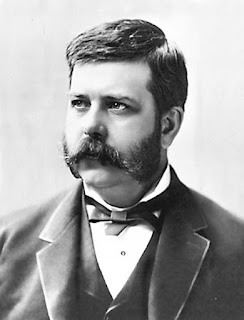Blog Roundup
Friday, August 11, 2023
A Friday Hodgepodge
1. At the blog of the Texas Institute for Property Rights, Brian Phillips considers the multitude of things that come up for referenda in California:
The fact that this is even up for a vote illustrates that rights are only temporary permissions in California. The proposals to impose new regulations on dialysis clinics and tax millionaires to subsidize electric cars are further evidence. For now, clinics and millionaires enjoy some property rights. But as the initiatives on the 2022 ballot show, those rights can be revoked if the majority chooses. Mob rule rules in California. [bold added]This reminds me of a something I read a long time ago about that state's gutting-by-referendum of its AB-5 anti-contract-work law. The commentator concluded that voters there were of a libertarian bent.
That may well be the case, but moods can change, and mob rule, capricious to begin with, can very quickly become even more obviously as bad as Phillips has just argued it is.
2. Although I do not see it posted so far at the OCON 2023 YouTube playlist, I heard that Harry Binswanger's talk, "Saving Math From Plato," was very well-received.
In what I hope turns out to be a teaser, he has posted revised slides for the talk at his blog. They are thought-provoking on their own, and apply the lesson from an Ayn Rand quote I encountered a few days ago, but in the form of what he calls Ayn Rand's special question: "What facts of reality give rise to the need of such a thing as mathematics?"
3. Jason Crawford, who has gotten lots of attention for his excellent essay on why Rome never had its own Industrial Revolution, examined another interesting question at The Roots of Progress some time back.
In the form of his notes on Empires of Light, by Jill Jonnes, we learn much, including about that early champion of AC, George Westinghouse. On this, Crawford quotes Jonnes:
Ahead of this, Crawford notes that a popular narrative about the War of the Currents is unjust to both Edison and Westinghouse, the latter by way of omission.the War of the Electric Currents grew uglier and fiercer, George Westinghouse decided in the fall of 1889 to hire a Pittsburgh newspaper reporter named Ernest H. Heinrichs to promote his companies and their achievements. On Heinrichs's first day, Westinghouse came by to wish him success and explain his purpose. "All I want to see is that the papers print [things] accurately. The truth hurts nobody. ...
Image by unknown photographer, via Wikipedia Commons, public domain.
"As to the attacks made against me personally, of course they hurt, but my self respect and conscience do not allow me to fight with such weapons. Besides, I feel that my moral reputation and my business reputation are too well established to be hurt by such attacks. However, I am preparing an article for the North American Review in answer to Mr. Edison's charges against the Alternating Current system, but beyond that I shall have nothing to give you for publication ... . By letting the others do all the talking, we shall make more friends in the end than if we lower ourselves to the level of our assailants."
In addition to being an enjoyable and informative read about the early history of electricity, you may be pleased to meet a new hero of the industrial era, even if you had heard of Westinghouse before.
4. At New Ideal, Keith Lockitch writes a long, but thorough and absorbing comparison of four recent works challenging the climate catastrophism narrative: False Alarm by Bjorn Lomborg, Apocalypse Never by Michael Shellenberger, Unsettled by Steven Koonin, and Fossil Future by Alex Epstein.
A good preview comes in the form of Lockitch's wrap-up of how the last of these goes beyond what the others discuss in terms of how badly scientific findings about the greenhouse effect are being distorted at every step of the way from analysis to headline:
Examining each of these functions in detail -- including some of the key people and prominent institutions that perform them on issues related to climate and energy -- Epstein clarifies just what are (in Koonin's phrasing) some of the "filters" that give rise to the "abundant opportunities to get things wrong."Lockitch turns from here to the question of why things are so bad and again finds Epstein's book to be "in a category of its own" among these four books, all of which he highly recommends.
In my view, this is a deeply insightful analysis that helps us avoid the false alternative offered by our increasingly tribalistic culture: the "climate denier's" outright dismissal of expert knowledge versus the blind parroting of the alarmist narrative in the name of supposedly "following the science."
Instead, what Epstein provides is a nuanced framework for how to think about expert knowledge, and how to identify when "the system we rely on to tell us what experts think is significantly distorting what actual experts think." [bold added]
-- CAV


No comments:
Post a Comment